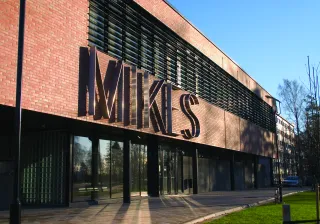What would happen if a government suddenly decided to define the metre used in its territory as shorter than the metre in all other countries? An exporter of sawmill goods would see a jump in profits, as goods sold by the metre would gain length, as it were, when shipped to a neighbouring country. By contrast, imports would suffer. But above all, such a move would cause profound confusion.
Industry and society today simply could not function without the effective ensuring of the reliability of measurement units and of the measurements made using them. It is not enough for, say, a manufacturer of engines to know the diameter of a cylinder in commonly known units; the manufacturer must also have knowledge of the reliability of that diameter measure in order to ensure that all parts manufactured will fit together and the engines will work. For a climate scientist, it is not relevant whether temperature data were originally expressed in Fahrenheit or Celsius. What is relevant is being able to rely on the quality of the data, i.e. to be confident that uncertainty factors having to do with readings and locations have been taken appropriately into account.
Versailles decision to redefine the kilogramme
Fulfilling the quality requirements for measurement data requires an internationally accepted and scientifically valid system of measurement units to which all measurements made anywhere in the world can be linked. Finland is a member of the General Conference on Weights and Measures, which administers the maintenance and development of the International System of Units, or SI system. National metrology institutes, such as VTT MIKES in Finland, see to the practical application of measurement units so that all measurement results will be accurate, from supermarket fruit scales to emissions measurements.
In November last year, I had the honour of representing Finland at a meeting of the signatories of the Metre Convention at Versailles, where a historical decision was made to revise the SI system as of 20 May 2019. Although the SI system has been constantly developed ever since the 19th century, this reform may be considered particularly significant.
There are seven base units in the SI system – second, metre, kilogramme, ampere, kelvin, mole and candela – and a large number of derivative units. So far, a variety of methods have been used in defining the base units. The most problematic of them has been the kilogramme, defined until now as equivalent to a physical item, the International Prototype of the Kilogram, which is stored near Paris. If that lump of metal were ever to be damaged, we would be in serious trouble. To remove the problem, it was decided at the Versailles meeting that all seven base units should be defined with reference to natural constants. As the name indicates, a natural constant is one that is invariable regardless of place or time, which ensures that measurement units based on such constants will remain similarly constant everywhere and for all time.
The transparency of data quality information is crucial for industry, healthcare and security solutions
In the short term, this reform just about to enter into force will have no visible impact whatsoever for users of calibration services, let alone ordinary consumers. Nevertheless, it is expected to have far-reaching consequences in facilitating new technologies and scientific breakthroughs.
So are we just going to sit back and see what happens? Sadly, we cannot afford to do so, because the world of measurements is changing fast. With digitalisation, the quantity and use of electronic measurement data are exploding. This creates new opportunities but also poses challenges for data processing and quality control.
The increasing quantity of measurement data also means new challenges for public decision-making based on that data, for instance in actions to curb climate change. Transparent and credible reliability assessment is of crucial importance in this context. At the same time, the accuracy requirements for measurements in industry are becoming increasingly strict in more and more areas of measurement. Manufacturing technologies on the molecular scale and quantum technology are advancing, and in the process are creating accuracy requirements of an entirely new calibre in industry. As automatic systems improve, new technology will be needed for efficient and reliable identification of increasingly complex and numerous chemical compounds and biological materials.
All this requires the development of new metrological solutions and technologies for the use of industry. We also need new scientific research to enable the implementation of measurement units to cater to emerging requirements. We must ensure the transparent transfer and processing of data quality information in various IT systems in industry, healthcare and security solutions.





